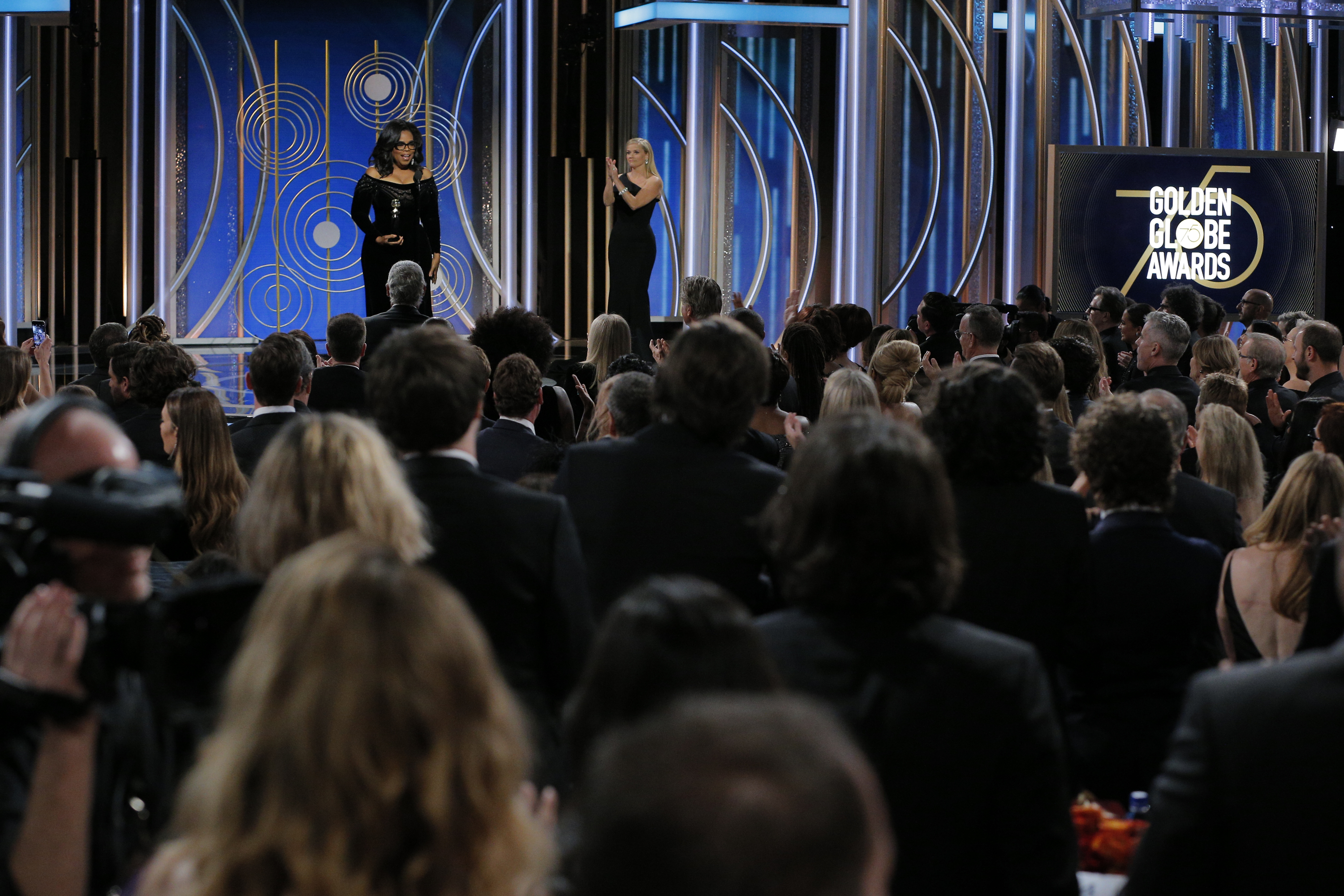At the Golden Globes Sunday, media icon Oprah Winfrey focused her remarks on the themes of the moment, notably sexual harassment and assault. “So I want all the girls watching here, now, to know that a new day is on the horizon,” said Winfrey, addressing live audience members, many of whom wore ‘Time’s Up’ pins promoting the movement to tackle those issues. Here, UConn psychologist and expert on sexual harassment Vicki Magley discusses why so many sexual harassment reports have come out this year, and the role of organizations in preventing sexual harassment in the future.
Q. Why are all these women and men coming forward with stories of sexual harassment now, when so many of these events happened years or even decades ago?
A. The reports hitting the mainstream media are with extremely powerful men. Huge power differentials lead to fear of retaliation, and this is what drives people to delay responding. If there’s any hint of possible retaliation, they just won’t do it.
We also live in a society that has normalized this type of sexuality – especially for men in positions of power. For example, Hollywood’s Weinstein. There was this norm of ‘the casting couch.’ When we did conform to the casting couch norm, it probably didn’t even occur to these women that they should report it.
This is the impetus behind the ‘#MeToo’ and ‘#TimesUp’ campaigns – that there’s power in numbers. It’s extremely unlikely that all these people will be punished.
Q. What do you think of the media reporting on this issue – do they do it well?
A. My pet peeve is that the media focus is so much on assault. But most sexual harassment is not unwanted touching, assault, or coercion. The bulk of what women experience is gendered harassment. Sexist comments. Sexualized come-ons. These make a hostile work environment. And then there’s comments that are non-sexualized but that everyone notices don’t happen to men. Most of the sexual harassment women experience is this more subtle type of behavior. And these behaviors have an effect. Women experiencing them don’t perform as well. It inhibits their productivity, and their promotional opportunities. All these things are very real.
Q. Most companies, universities, and other institutions in the U.S. have their employees go through some sort of sexual harassment training. Why is the problem still so pervasive?
If you aren’t understanding where your gaps are, your training could be completely missing the target. — Vicki Magley
A. Because most of the prevention programs are not effective. There’s a lot of cynicism people hold when they enter sexual harassment training. They’re cynical of the organization’s goals, because those goals are never explicitly stated. They are cynical of being told they’ve been naughty. And they are cynical of how the organization is really going to behave in the future, because they’ve heard stories from friends and coworkers that do not back up the training.
And they’re right to be cynical! Most sexual harassment training is viewed by the organization as a legal preventive exercise. You tend to leave the session more cynical than you entered, instead of having the training dismantle the cynicism.
Q. Are there any companies or institutions that have prevention programs that work?
A. The military has been tracking sexual harassment and assault since the mid-1990s. It’s at least asking the questions. The military has been tracking this for a very long time. Very few other institutions do that. And almost none of the harassment prevention training operations make the effort to evaluate their own training, because it’s scary. Because what if they came back and found out they’re ineffective?
Q. So what can organizations do to prevent sexual harassment?
A. The crucial first step is conducting a needs assessment. Because if you aren’t understanding where your gaps are, your training could be completely missing the target. But almost no institution ever does a needs assessment for sexual harassment, because sexual harassment is a crime and management fears the assessment could be used against them. So they end up bringing in these canned interventions that totally miss the mark. Harassment comes in different flavors.
So the needs assessment comes first. Then tailoring the training to the needs and goals of the institution. What are the goals? Most organizations have multiple goals. They’re trying to raise legal knowledge, and they’re trying to let employees know the institution’s policies. But they also want employees leaving with new knowledge of how not to behave. The institution may also view it as reducing their legal liability in the event of a lawsuit. But this is not true. There have been examples where a court has ruled that an institution’s sexual harassment training was obviously ineffective.
Perhaps institutions should look at incivility training programs. I once worked with a health care organization that did a needs assessment on incivility, and then trained certain employees to train their colleagues on how to be more civil. When I showed them their own data showing how experiences of incivility decreased their fellow employee’s satisfaction and loyalty, every single one of the future trainers sat up and paid closer attention. They were with me. It’s that kind of needs assessment that would really help employees be less cynical about sexual harassment prevention.



